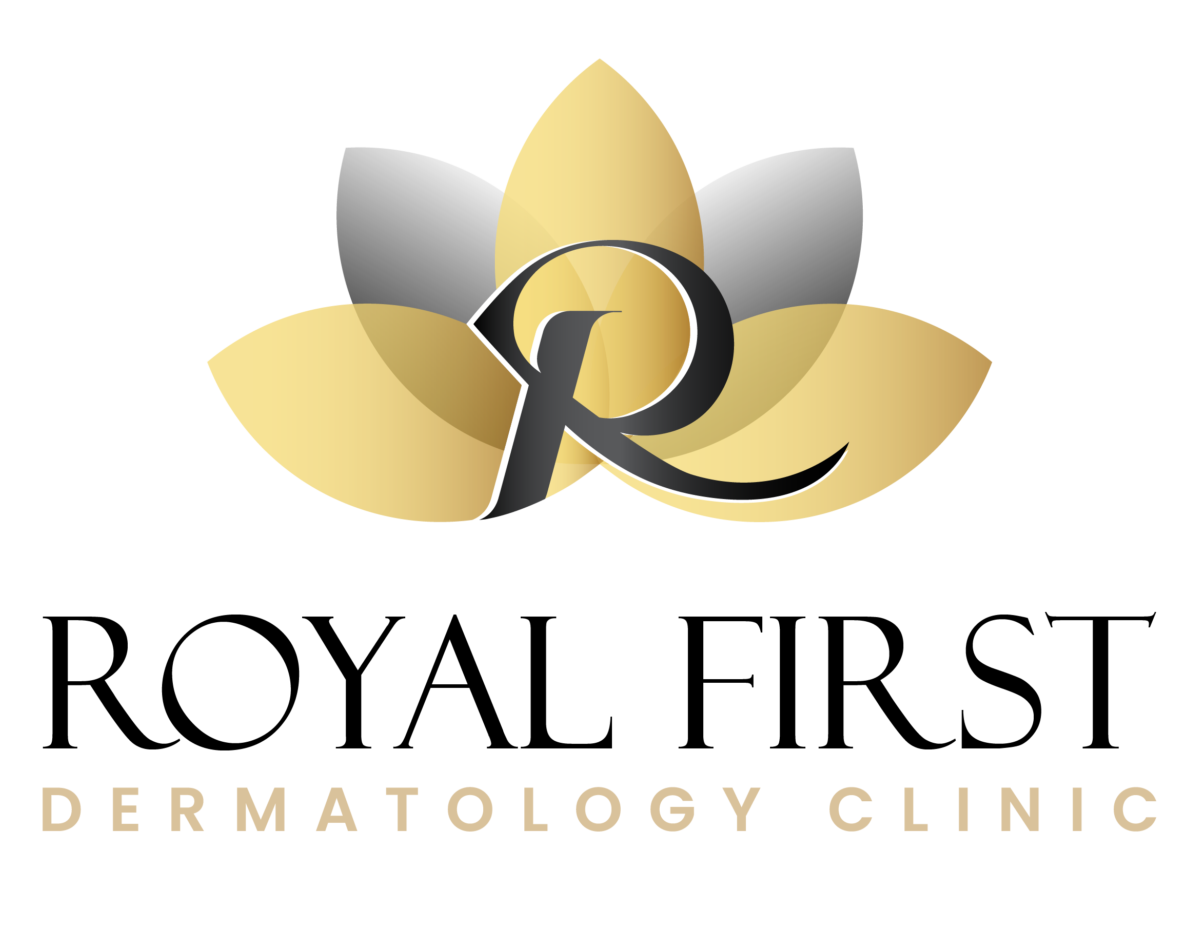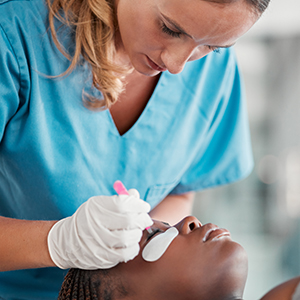
Medical Dermatology is a branch of medicine that deals with the diagnosis and treatment of various skin, hair, and nail disorders. Medical dermatology manages common and rare skin conditions, such as acne, eczema, psoriasis, vitiligo, warts, and skin cancer. it also provides care for patients with chronic diseases that affect the skin, such as diabetes, heart disease, and immune deficiencies. Medical dermatology services are essential for maintaining healthy and beautiful skin, as well as preventing and detecting serious skin problems. Royal First dermatology clinic offers a range of medical dermatology services, such as skin biopsies, cryotherapy, phototherapy, immunotherapy, and topical and systemic medications.

Cosmetic Dermatology is a medical specialty that aims to improve the appearance and health of the skin, hair, and nails through a variety of procedures. It focuses on enhancing skin texture, color, and shape, as well as reducing signs of aging, sun damage, and scarring.
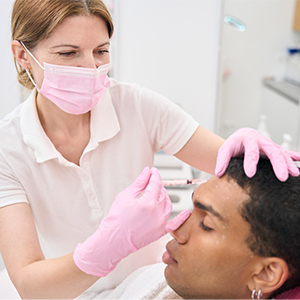
Aesthetic Services are services that aim to improve the appearance and well-being of the skin, hair, and nails. Aesthetic Services are different from medical or cosmetic dermatology services, as they are more focused on enhancing the natural beauty and health of the skin by Preventing and delaying the signs of aging, by stimulating the skin’s natural regeneration and collagen production.
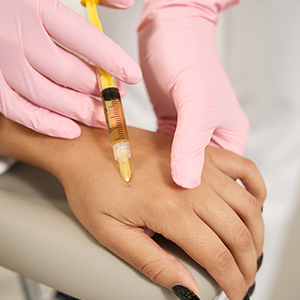
The Needling Surgical Technique for Vitiligo is a minimally invasive procedure that involves transferring melanocytes from one area of the body to a depigmented area affected by vitiligo using fine needles. This procedure aims to stimulate repigmentation and improve skin color and function by implanting skin grafts containing melanocytes.
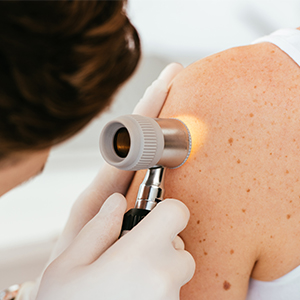
Skin Cancer Screening is a service that aims to identify skin cancer in its early stages for more effective treatment. It involves a visual examination of the skin by a dermatologist or trained healthcare provider to look for any unusual spots, moles, or lesions that could indicate skin cancer. A dermatoscope may be used to magnify the skin and provide a clearer view of its structure and color. In some cases, a skin sample may be taken for further testing.
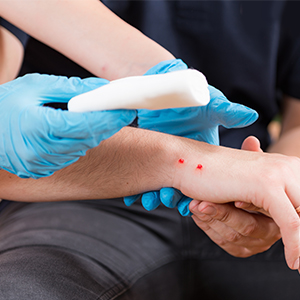
Skin Allergy Testing is a diagnostic service used to identify the triggers of skin allergies, such as hives, rashes, itching, or swelling. This testing involves applying small amounts of potential allergens to the skin and monitoring for any allergic reactions.
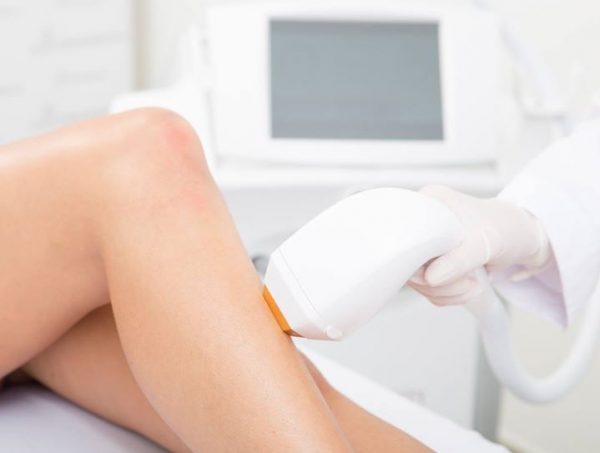
Royal First Clinic offers professional laser hair removal services, using advanced technology to provide safe, effective, and long-lasting results. Our experienced team ensures a comfortable and personalized treatment plan, helping you achieve smooth, hair-free skin with minimal discomfort and downtime.
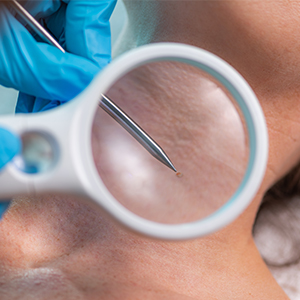
A skin biopsy is a procedure where a small piece of skin is taken for examination under a microscope to help diagnose skin conditions like cancer, infections, rashes, or blisters.
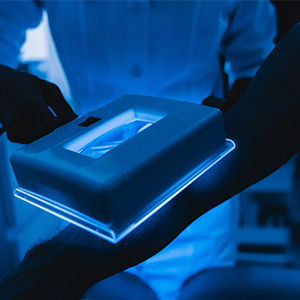
Wood's Lamp Examination is a procedure that uses a unique device emitting UV light to examine the skin, scalp, and hair for different conditions. This UV light can detect changes in skin color, fluorescence, or texture that may not be visible in regular light. This examination can assist in diagnosing and monitoring skin infections, pigment disorders, metabolic disorders, and skin cancers.

Trichoscopy service is a service that involves the use of a special device called a trichoscope, which magnifies the hair and scalp up to 70 times and allows the visualization of various features and patterns that can help diagnose and monitor different hair and scalp disorders.
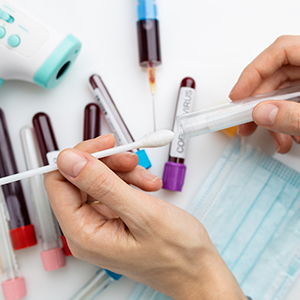
Routine blood tests are an essential component of dermatology care as they assist in diagnosing and tracking skin conditions and diseases. These tests are typically conducted in a lab and the results are analyzed by your dermatologist to guide treatment and monitoring. By offering insights into your general health and skin health, routine blood tests enable your dermatologist to deliver optimal care.
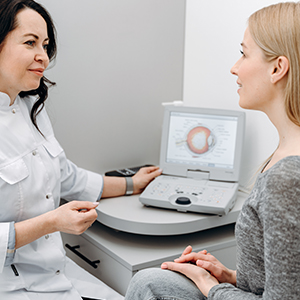
Hormonal tests are a dermatology service used to diagnose and treat hormone-influenced skin conditions. These tests measure hormone levels in the blood, including estrogen, progesterone, testosterone, thyroid hormones, and cortisol. Identifying hormonal imbalances allows dermatologists to prescribe suitable treatments. Hormonal tests can greatly enhance the skin health and overall wellbeing of patients with hormonal disorders.
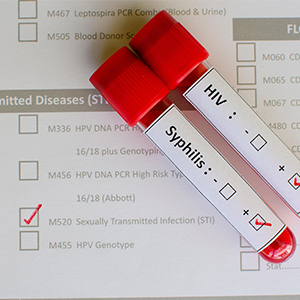
Sexually Transmitted Infection (STI) Tests are a type of dermatology service that can help diagnose and treat various skin conditions that are caused by bacteria, viruses, fungi, or parasites that are transmitted through sexual contact. STI Tests are usually performed by collecting samples of blood, urine, saliva, or swabs from the affected areas. The samples are then sent to a laboratory for analysis, and the results are reported to the dermatologist for interpretation and follow-up.
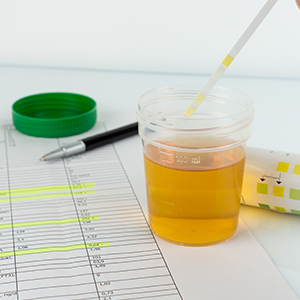
Urine Analysis is a type of medical test that examines urine to diagnose and monitor skin conditions. It involves collecting a urine sample from the patient and sending it to a lab for analysis. The lab technicians look for signs of infection and other abnormalities in the urine, which can help identify and treat urinary tract infections, kidney diseases, diabetes, and other metabolic disorders that can cause skin problems. Urine Analysis can also assess the effectiveness of treatments by measuring changes in urine parameters
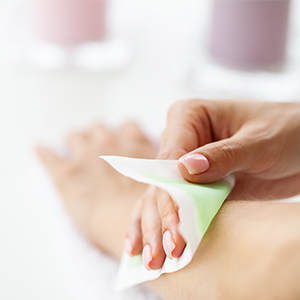
Skin Scrapings and Nail Clippings are a diagnostic procedure used to identify and treat skin conditions caused by fungi. Samples of skin or nail material are collected from affected areas and tested in a laboratory for fungal elements. This helps confirm the diagnosis of fungal infections like tinea or candidiasis and determine the most effective treatment, such as antifungal medications.
Schedule a consultation with our team and let’s make things happen!
